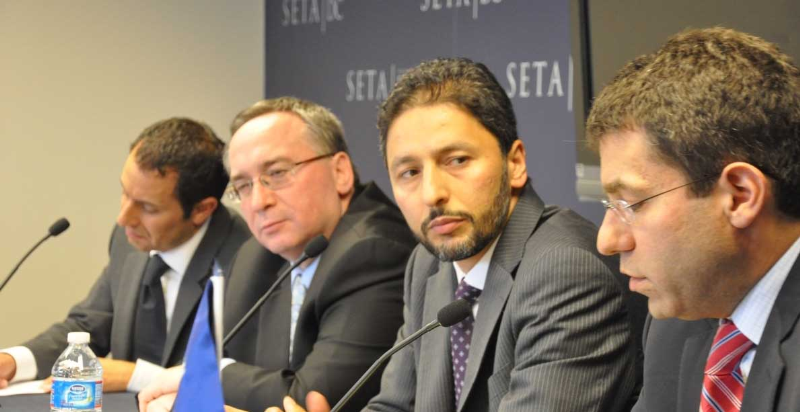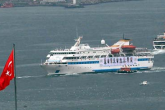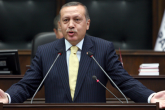SETA-DC PANEL DISCUSSION
Chair:
Kadir Ustun, SETA-DC
Speakers:
Daniel Levy, New America Fnd.
Stevn A. Cook, Council on F.R.
Erol Cebeci,SETA-DC
Date: September 19, 2011 Monday
Venue: SETA-DC, Washington
Steven Cook began the discussion by asserting that the Palmer Report confirms the overarching Israeli argument about the justification for the Gaza blockade. The report declares the naval blockade part of a separate policy from the land border closure because the two were implemented at different times. Although this is convincing from a legal perspective, Cook contended, it is not so from a political perspective.He added that the Palmer Report’s conclusion ‘absolutely eviscerated’ the Turkish narrative about the flotilla. The speaker went on to say that the Turkish government reacted the way it did for domestic reasons, but noted that this alone was not the cause for the downgrade in Turkish-Israeli relations. Turkey and Israel have been traveling down this road from the beginning, Cook said, due to a number of structural and political reasons. He noted that Erdoğan and the AKP benefit from criticism of Israel, and claimed that the AKP wanted to alter relations with the Arab world but had to change its relations with Israel in order to do that. Cook contended that the current situation is not a crisis, just a conclusion for Turkish-Israeli relations. The US effort to repair those relations is a ‘fool’s errand’ according to the speaker, who stated that both Turkey and Israel are interested in posturing for domestic benefit. Cook ended by suggesting that the US will have to play referee in the eastern Mediterranean because irresponsible people will try to break the blockade.The next speaker, Erol Cebeci, declared that the Turkish government’s demand for an apology was very clear, and noted that the Israeli government’s response was not a quick or hasty decision. He emphasized that currently the Middle East is not experiencing ‘ordinary times,’ going on to explain that in the 15 months since the flotilla, the level of instability in the region has increased, and the power equation has been rewritten. During the Cold War era, Cebeci explained, there were clear-cut alliances and distinctive implications for foreign policy, where security issues dominated policymaking. The speaker went on to say that after the Cold War, Turkish foreign policy could take into account other factors, but was also dealing with domestic security and the threat of the PKK. Cebeci explained that the 1990s were dominated by weak coalition governments, high inflation and new economic issues in Turkey, but, at the same time, Turkey and Israel perceived similar threats in the forms of radical Islam, Iran, and Syria. After the postmodern coup, the capture of Öcalan, and economic crisis, Cebeci stated, a new, strong government came to power in 2002. Cebeci contended that Turkey’s regional goals included political and economic integration with the Middle East, North Africa, the Balkans and the Caucasus, but that Israel had resisted this strategy and the ongoing regional changes, contributing to problematic relations.
The final speaker, Daniel Levy, began by offering analysis of the Palmer Commission and Report, which he deemed ‘transparently political.’ Noting that there has been ‘a degree of naivete’ in reading Israel, Levy contended that neither the US nor Turkey had read the Netanyahu government correctly and emphasized the internal reasons for Israeli decision making. Levy identified two phases of Israel’s regional position in which initially Israel worked with the non-Arab ‘periphery,’ including Turkey, Iran, and Ethiopia. This was followed by a ‘coalition of the super-periphery,’ in which Israel worked with the Greeks, Balkan states, and even the PKK. The loss of Turkey as an ally, the speaker contended, has ‘devastating eff
In this article
- Foreign Policy
- News
- 1990
- 2002
- 2011
- Arab world
- Benjamin Netanyahu
- Cold War
- Dynamics
- Eastern Mediterranean
- Gaza
- Inflation
- Islam
- Islamic Republic of Iran
- Israel
- Kurdistan Workers' Party Terrorist Organization (PKK)
- Mediterranean
- Middle East
- North Africa
- Palestine
- Palmer
- PKK - YPG - SDF - PYD - YPJ - SDG - HBDH - HPG - KCK - PJAK - TAK - YBŞ
- Recep Tayyip Erdoğan
- Regional
- Relations
- Report
- SETA
- SETA Washington DC
- Syria
- Syrian Civil War
- Syrian Conflict
- Syrian Crisis
- Terror
- The
- The Balkans
- The President of the Republic of Türkiye
- Turkish Foreign Policy
- Turkish President
- Turkish-Israeli Relations
- Türkiye-Israel Relations
- Türkiye's Foreign Policy
- Türkiye's Justice and Development Party | AK Party (AK Parti)
- United States (US)


